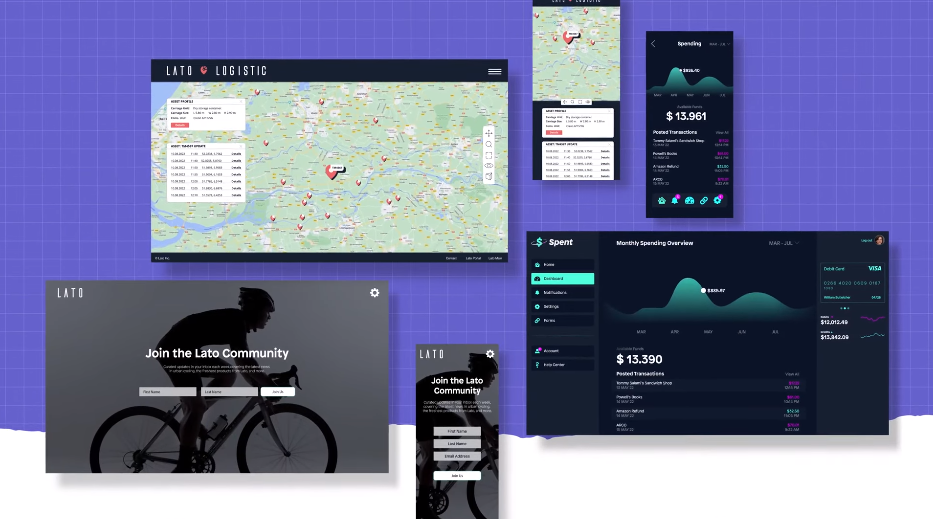 AI
AI
 AI
AI
 AI
AI
Mendix today previewed a new version of its low-code development platform that will make it easier for companies to build artificial intelligence applications.
The new version, called Mendix 10, also adds two AI chatbots designed to ease developers’ work. The company plans to share more details about the update at an event next Tuesday.
Mendix’s low-code platform enables companies to build applications with less work than the task usually requires. Developers can assemble prepackaged software components into applications through a drag-and-drop interface. When needed, the components can be extended with custom code.
Mendix became a subsidiary of Siemens AG through a $730 million acquisition in 2018. Since then, the software maker claims, its customer base has grown to more than 4,000 enterprises.
The first major enhancement in Mendix 10 is a toolkit called the ML Kit. It allows developers to incorporate AI models into applications they build using Mendix 10. The toolkit supports models based on ONNX, an open-source neural network format that is widely used in the enterprise.
According to Mendix, the ML Kit provides access to dozens of pre-trained AI models. Companies can also use custom models. The toolkit works with PyTorch, Caffee2 and a range of other ONNX-compatible AI development frameworks.
Often, applications and the AI models they incorporate run on separate servers. Data takes a certain amount of time to move between the servers, which creates latency. Mendix says ML Kit allows companies to run the neural network that powers an application in the application’s own container, which reduces latency.
Another benefit the toolkit promises to provide is faster software integration. When an application and its AI model run on separate infrastructure, integrating them can require a significant amount of custom code. Mendix says its platform makes it possible to perform the task in hours rather than the weeks usually required.
“Enterprises with sophisticated machine learning capabilities can easily incorporate their models into Mendix applications using the ML Kit,” said Amir Piltan, Mendix’s senior product manager for AI. “But for those earlier in the adoption curve, it is not necessary for enterprises to build models from scratch.”
ML Kit is rolling out alongside a pair of new AI chatbots. According to Mendix, they’re designed to help developers build applications faster.
The first bot can scan an application’s code base to check if it complies with software development best practices. By automating the process, it frees up developers to perform other tasks. Mendix says the chatbot can also help users with more limited technical know-how ensure applications they create meet quality standards.
“The bot is trained using statistical analysis from thousands of anonymized Mendix apps, allowing it to learn both common anti-patterns and refined best practices,” Mendix product marketing manager David Brault told SiliconANGLE. “This extensive knowledge base enables the bot to provide valuable insights and recommendations for improving microflows, domain models, pages and other crucial elements in app development.”
The other new chatbot detailed today helps developers create data validation workflows. Such workflows are responsible for ensuring that a given application component only ingests input it’s designed to process. A data validation tool can, for example, prevent users from accidentally entering text into a form that is only meant to process numerical input.
If a piece of code receives data it was not designed to ingest, software errors can emerge. Data validation workflows avoid such errors, which increases applications’ reliability.
Data validation is also an important element of software teams’ cybersecurity initiatives.
Many types of cyberattacks, such as SQL injections, work by providing an application with input it was not designed to process. The malicious request leads to software errors that, in some cases, can be exploited by hackers to steal data. Filtering malicious input using data validation code mitigates the risks posed by such cyberattacks.
“There are different ways to set up data validations in Mendix,” Brault explained. “Building data validations in microflows is a manual and repetitive task and Validation Assist helps automate it.”
Mendix detailed the new features today alongside an update about its longer-term AI roadmap. The company detailed its work on an upcoming chatbot, called Mendix Chat, that will help developers implement certain software constructs faster. The Siemens unit also plans to apply AI to a number of other development tasks down the road.
“Our next step will be the introduction of ‘Mendix Chat,’ a chat bot in the Mendix IDE that will guide developers on how to apply certain concepts or patterns,” detailed Mendix Chief Product Officer Hans de Visser. “We are currently training a large language model based on sources drawn from Mendix Forum, Mendix documentation and our support system.”
The company will also enhance its features for developing application interfaces. “Later this year, Mendix 10 will introduce a theme customizer feature, empowering non-designers with enhanced styling options,” Brault detailed. “Gone are the days of requiring technical design expertise to achieve a distinctive look and feel for your apps.”
With reporting from Paul Gillin
Support our mission to keep content open and free by engaging with theCUBE community. Join theCUBE’s Alumni Trust Network, where technology leaders connect, share intelligence and create opportunities.
Founded by tech visionaries John Furrier and Dave Vellante, SiliconANGLE Media has built a dynamic ecosystem of industry-leading digital media brands that reach 15+ million elite tech professionals. Our new proprietary theCUBE AI Video Cloud is breaking ground in audience interaction, leveraging theCUBEai.com neural network to help technology companies make data-driven decisions and stay at the forefront of industry conversations.